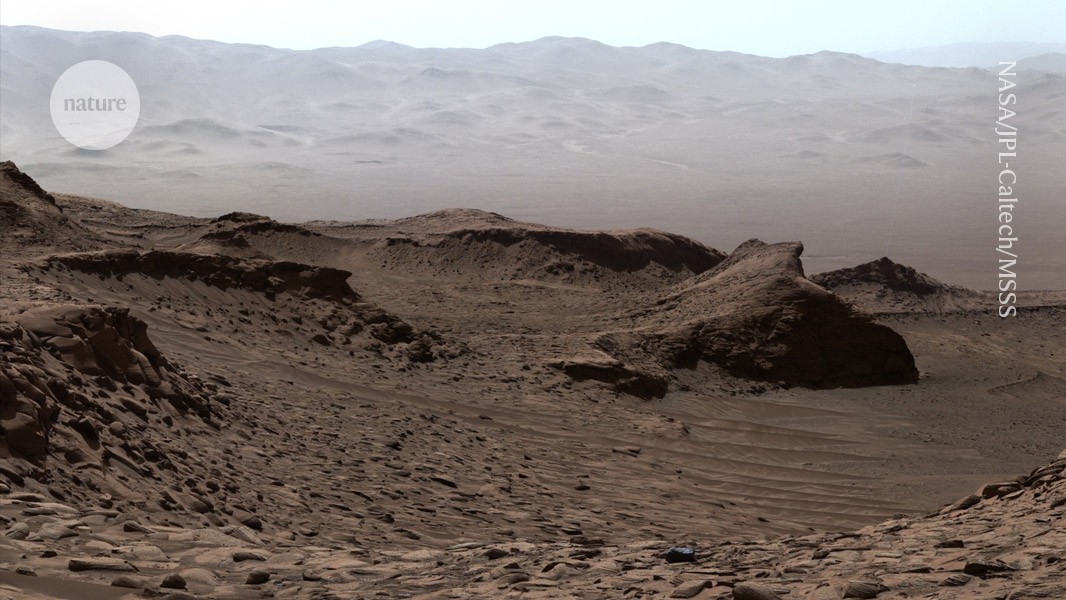
"The Curiosity rover's recent findings of carbonate minerals suggest that ancient Mars had conditions favorable for a thicker atmosphere and possibly liquid water, revealing its atmospheric evolution."
"These carbonates, which are typically formed in wet, warm conditions, provide crucial evidence that Mars was once a more hospitable environment, shedding light on its climatic history."
NASA's Curiosity rover has made a significant discovery of large amounts of carbonate minerals on Mars. This finding is instrumental in unraveling the mystery of how the planet transitioned from once having a rich atmosphere to its current dry state. Carbonates form in environments rich in water, suggesting that ancient Mars had a much warmer climate supporting liquid water. This discovery not only enhances our understanding of Martian environmental history but also raises questions about the potential for life in its past.
Read at Nature
Unable to calculate read time
Collection
[
|
...
]